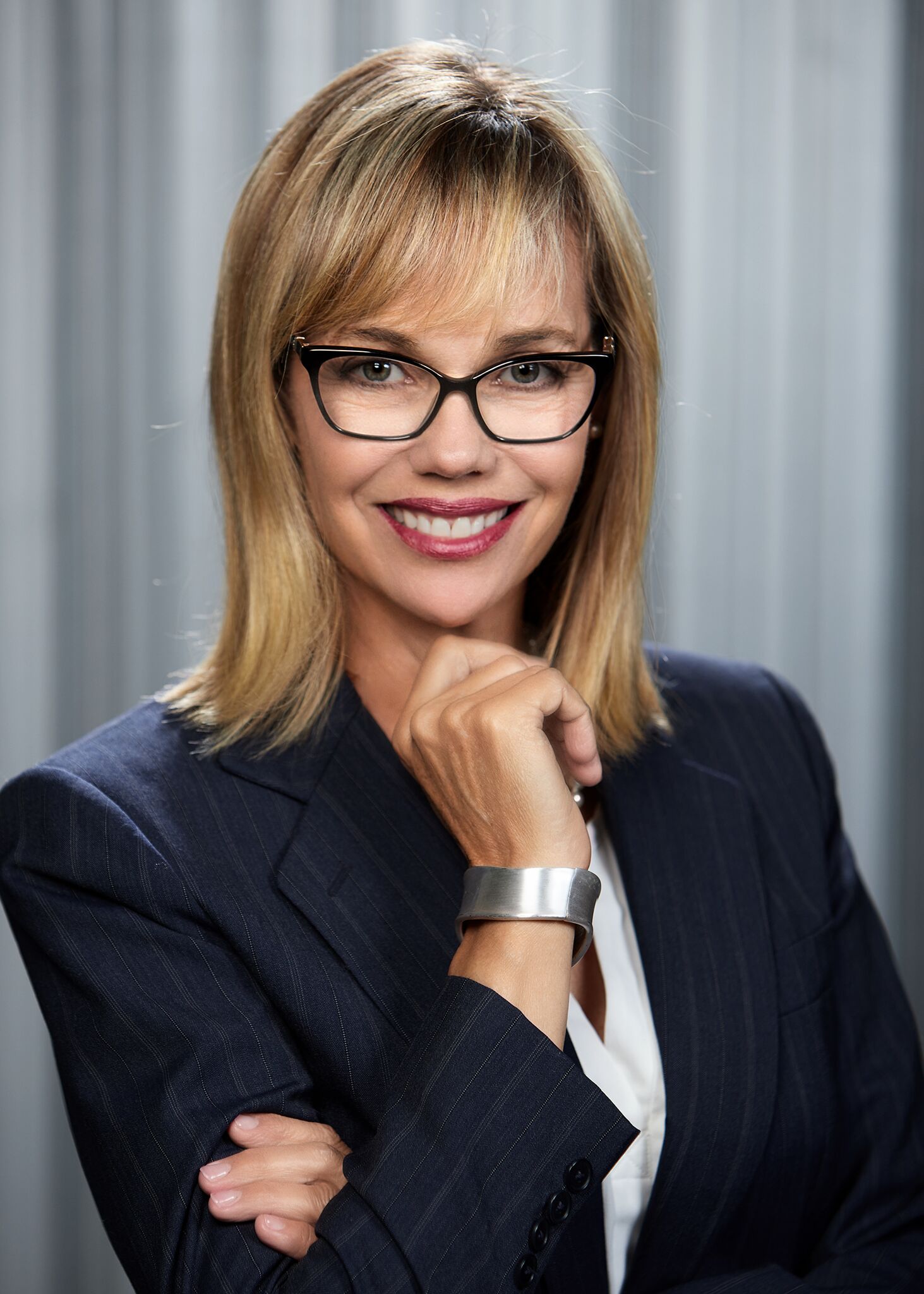
Andrea Davis, leading expert in the commercial real estate industry, has over 20 years of industry experience in helping thousands of businesses find their dream office. She is a regular speaker at Phoenix Business Relations and Women of Influence and has been featured in numerous publications including Phoenix Business Journal, AZ Big Media, AZRE, and many others where she has shared her expertise with the community.
Andrea is the author of the book “SimpLEASEity,” which focuses on leasing office, medical, industrial, and retail space. She is also the owner of Andrea Davis Commercial Real Estate which was voted one of the best businesses in Arizona by Ranking Arizona. Clients choose to work with Andrea for her full-service capabilities, experience, and expertise. Her breadth of knowledge stretches from developers to landlords to buyer/tenant representation and investments.
In her spare time, Andrea enjoys spending time with her family and two rescue dogs. She is passionate about helping others and works closely with the non-profit 200 Orphanages. She feels fortunate to have made an impact with the group by raising enough money to build a well for a Tanzania orphanage. Andrea owes her fresh point of view to the travels she’s done and hopes to make the world a better place to live, one action at a time.
Q: Could you start by telling us a little bit about your background and why you chose a career in commercial real estate?
I’d like to say I chose CRE, yet I suspect it chose me. I was working in a high-end restaurant and waiting on a large group of developers. I guess I impressed them with my people skills. They each offered me a job at their company. I chose WAM Development Group since they had an office in Scottsdale, AZ.
Q: What are your thoughts on the CRE market in the U.S. today in terms of trends and challenges?
My point of view for CRE is as a commercial advisor. In the past, CRE was built on long term relationships and reputation. Databases and information gathering was sacred and took years to create. Technology rapidly changed this with information at developers’ and users’ fingertips. For instance, with the evolution of GPS tracking on phones, retails gather detailed information on how buyers shop. This changes how real estate is analyzed. Another way the industry is changing is that buyers and tenants do a lot of preliminary ‘shopping’ for commercial space online. They have more knowledge going into a transaction.
Q: What differentiates the commercial real estate market in Arizona from other major markets in the United States?
Arizona market is a secondary market and relies heavily on regional offices, so when the market crashes, the regional offices must downsize or pull out of Arizona. If our development cycle is overbuilt with spec buildings when the economy crashes, vacancies sky rock and rental rates plummet. In 2020, our market is thriving. Inventory is at an all-time low across the board and most of the new product is spoken for before it is built. Our biggest challenge is the LACK of inventory.
Q: How have you seen the industry evolve in the past 20 years you’ve been involved in it?
A roller coaster is the best analogy for the ride we’ve had in Arizona over the past 20 years. We pulled out of the ’90s steadily and in 2000, development was abundant, and rents escalated. We went from Class A office in the mid $20’s per square foot to the low $30’s per square foot. No one ever expected office rental rates to soar above $30 per square foot in our marketplace. And then 2008/9 happened. Within a year we had 30 percent vacancies and Class A dropped to the high teens and low twenties. It took us almost 8 years to dig out of the whole.
Today Class A office is in the low $40’s per square foot. Prices have risen almost 20% in the last two years due to lack of land, higher construction costs and very low inventory. Landlords rule once again. Who would have thought?
Q: Where do you see it going in the future?
Over 300 people a day are moving to the Phoenix Metropolitan area. Arizona was recently named one of the best states to start a business by Wallet Hub, ranking 7th. Additionally, total employment in the region has grown by 91,000 over the past year. Being on the frontline assisting clients, we discover valuable tib bits of information to pass on. As an example, outlining areas like Buckeye, AZ are desperate for medical professionals. They are two-thirds underserved in this area. The medical professionals need commercial buildings for their practices. Arizona has a lot of opportunities for astute developers provided they team up with the right advisors.
Q: Is there anything that you believe everyone in this industry should be working towards?
I’d like to see residential Realtors/sales agents and commercial brokers be required to have a separate license. The two businesses are night and day to one another. One license simply cannot cover the different knowledge needed for both industries. At a minimum, commercial brokers should be required to have an additional certificate to distinguish the two skill sets.
Q: What are some of the innovative and modern techniques and tactics for marketing a space that didn’t exist even ten years ago?
I love the evolution of marketing. Digital marketing is changing the world at lightning speed. Yesterday door knocking, mailing addresses, and zip codes were queen. Pricey media advertising was questionable on a return on investment.
Today emails, mobile numbers, reviews, and social media are queen. Targeted digital advertising based on consumer clicks results in immediate results. Any company can afford to advertise with Facebook, Twitter, Instagram, and LinkedIn. A company doesn’t have to be big to look big or create a frenzy in the open market.
Q: How has the evolution of online marketing impacted the commercial real estate industry?
I am shocked at how few brokers utilize the power of online marketing. Unfortunately, brokers who work at a large company, are limited on how and what they brand. Smaller companies offer more flexibility with online marketing for the individual. One thing I’ve discovered, marketing a company is very different than marketing an individual’s specific talents and expertise.
Q: Can you give us some tips for negotiating a lease?
Driven by clients’ concerns and need for basic information on the lease process, I recently published a long-overdue book on commercial leasing, SimpLEASEity™. It’s a comprehensive tool to help business owners be on a level playing field when leasing commercial space. SimpLEASEity™ opens business owners’ eyes to common pitfalls they often fall prey to when signing a lease without representation, and it simplifies the complex transnational process. Some of SimpLEASEity™ tips include:
- Hire an experienced tenant representation to guide you through the entire lease transaction – at NO cost to you so you can have your dream office without breaking the bank.
- Engage in candid discussions with your rep about where your company is today and where they want to be in the future.
- Define a lease transaction timeline from touring to move-in, allowing at least 6 months from your initial tenant rep meeting.
- To be sustainable, the office needs to support the business and be less than 12% of your operating expenses.
- Understand the balance between economics and location. A high-profile location is sexy and costly, yet not always necessary to conduct a successful business.
- Office culture promotes employee retention. Select a building and location that makes your employees feel important and needed and easy to access.
- Define your space requirements ahead of time. Poor utilization of space is where companies lose a lot of money. Often the landlord will pay for a space plan.
- Everything in a lease is negotiable. Don’t settle for an ok deal.
- Always have agreed upon lease terms in writing! In disputes, the written lease rules.
Q: Do you think there are some lessons from the past few years that you would impart as an absolute must for those looking to get into the CRE industry?
- Research a strong mentor, this industry has a long learning curve.
- Make sure you have a reserve of cash.
- Take your time defining what part of the industry you want to play in.
- Work as many deals as you can, sit in on conference calls, meetings or whatever to understand the inside workings of the deal.
- Be proficient at golf.
- Master cutting edge technology or hire experts who know the ins and outs of technology.
- Join one CRE industry group and be on a board.
- As soon as you can, hire your own personal public relations person.
- Set your sights on becoming a member/designee of CCIM, SIOR and CRE.
Q: Any other insights that you’d like to share?
CRE is an exciting career where every day is different. It’s enriching and never boring!
Interested in being interviewed for our Expert Insights series? Feel free to reach out to us at [email protected] or check out other articles from our series here.









